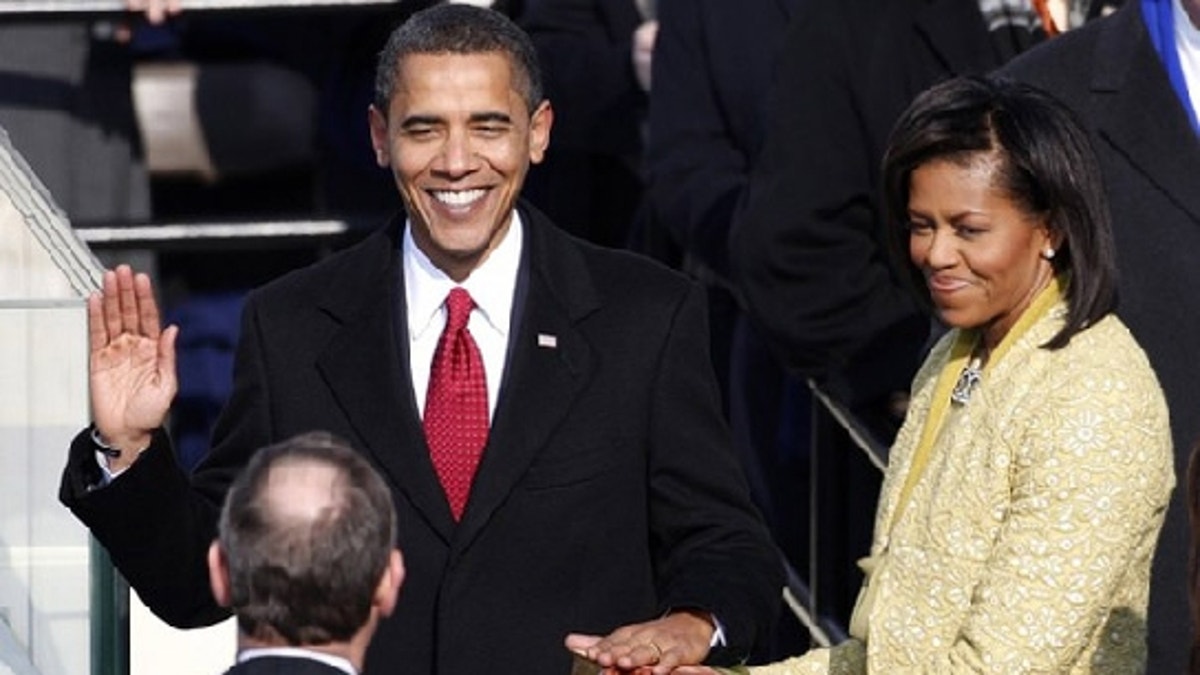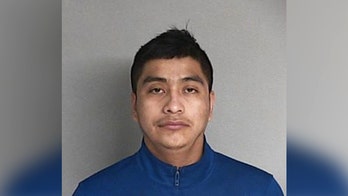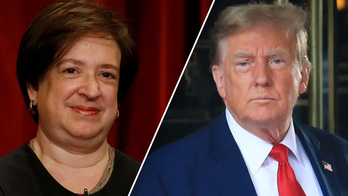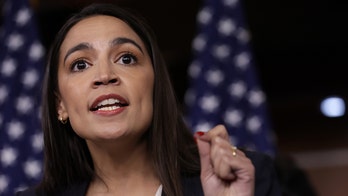
Jan. 20: Barack Obama takes the oath of office as the 44th president of the United States with his wife Michelle by his side. (Reuters)
WASHINGTON -- As millions converged on Washington last year to witness the inauguration of President Barack Obama, security officials were concerned that among them were extremists traveling from Somalia to set off explosives as Obama took the oath of office.
The incoming administration took the threat so seriously, the New York Times reported, that contingency plans were drawn up in case the incoming government and president were killed.
For 72 hours before Obama was sworn in, intelligence agencies worked around the clock trying to figure out whether the threat was real and what, if anything, should be done if a terrorist struck while millions watched on the Mall and tens of millions more saw the ceremony on television.
According to intelligence officials, a group of Somalis was believed to be crossing from Canada to detonate a bomb as Obama took the oath.
Obama's counterterrorism advisor John Brennan told the Times that as the inauguration drew nearer the plot "seemed to be growing in credibility and relevance."
As Obama publicly thanked the outgoing administration for its generous help in a smooth transition, privately his advisers and Cabinet-designees sat across the table from Bush's team to evaluate the information coming from the intelligence community and what should be done about it. The president-elect could do little beyond ask questions.
"All the data points suggested there was a real threat evolving quickly that had an overseas component," Juan Carlos Zarate, President George W. Bush's deputy national security adviser for terrorism, was quoted as saying.
Defense Secretary Robert Gates, the only Cabinet member who had been sworn in by Jan. 20, was selected as successor to the leadership in a worst case scenario and spirited off to a secret location during the inauguration.
In the end, the report turned out to be false: No terrorists traveled here to attack the inauguration. The story was apparently little more than a rumor, fueled by a false report from a rival organization.
Brennan said he suspected a "poison pen" threat in which militants revealed information to harm rival groups.
The Associated Press contributed to this report.




